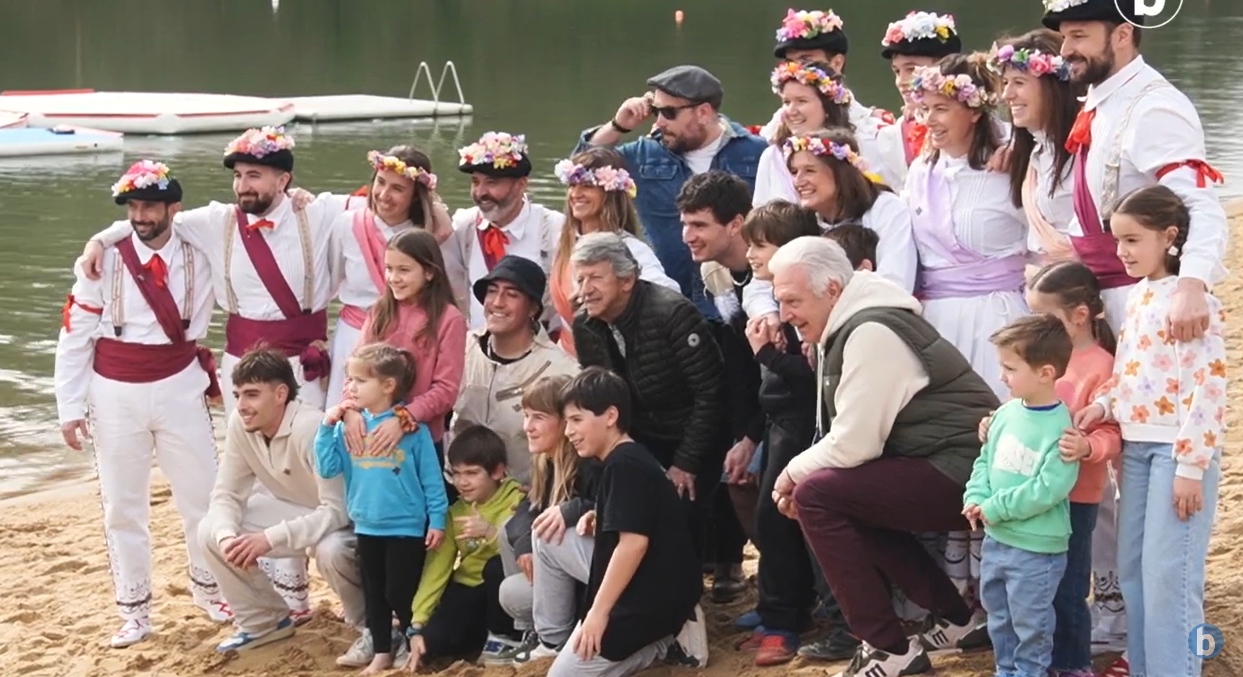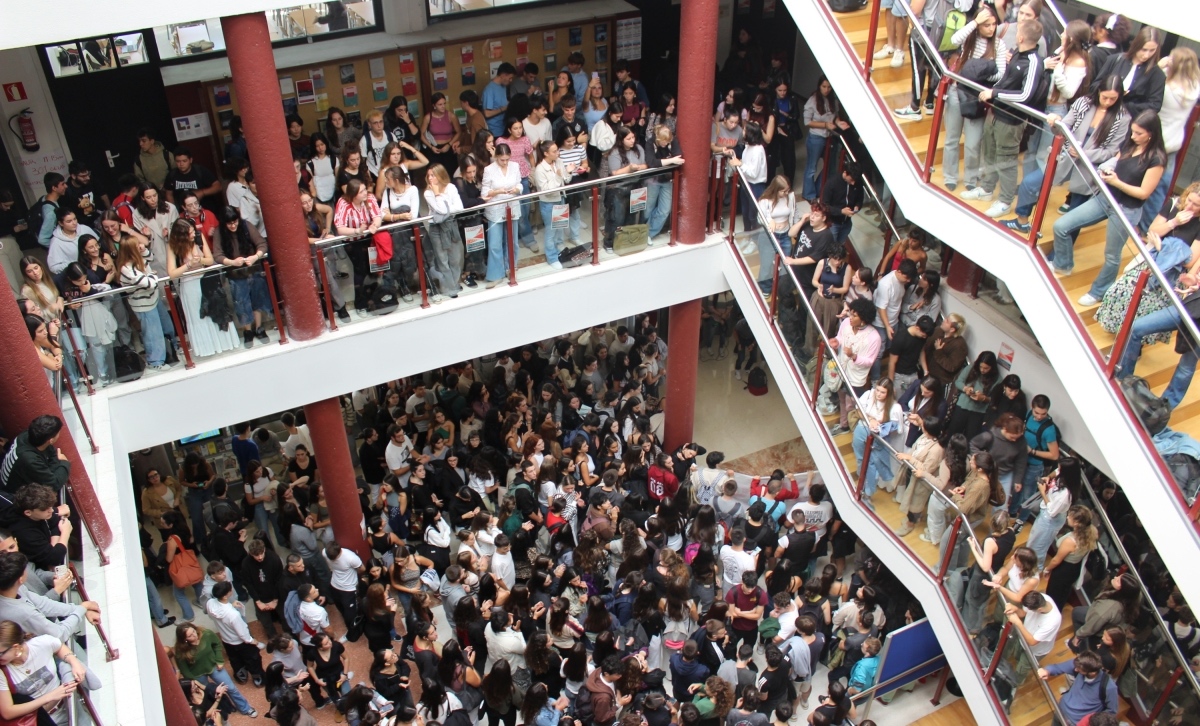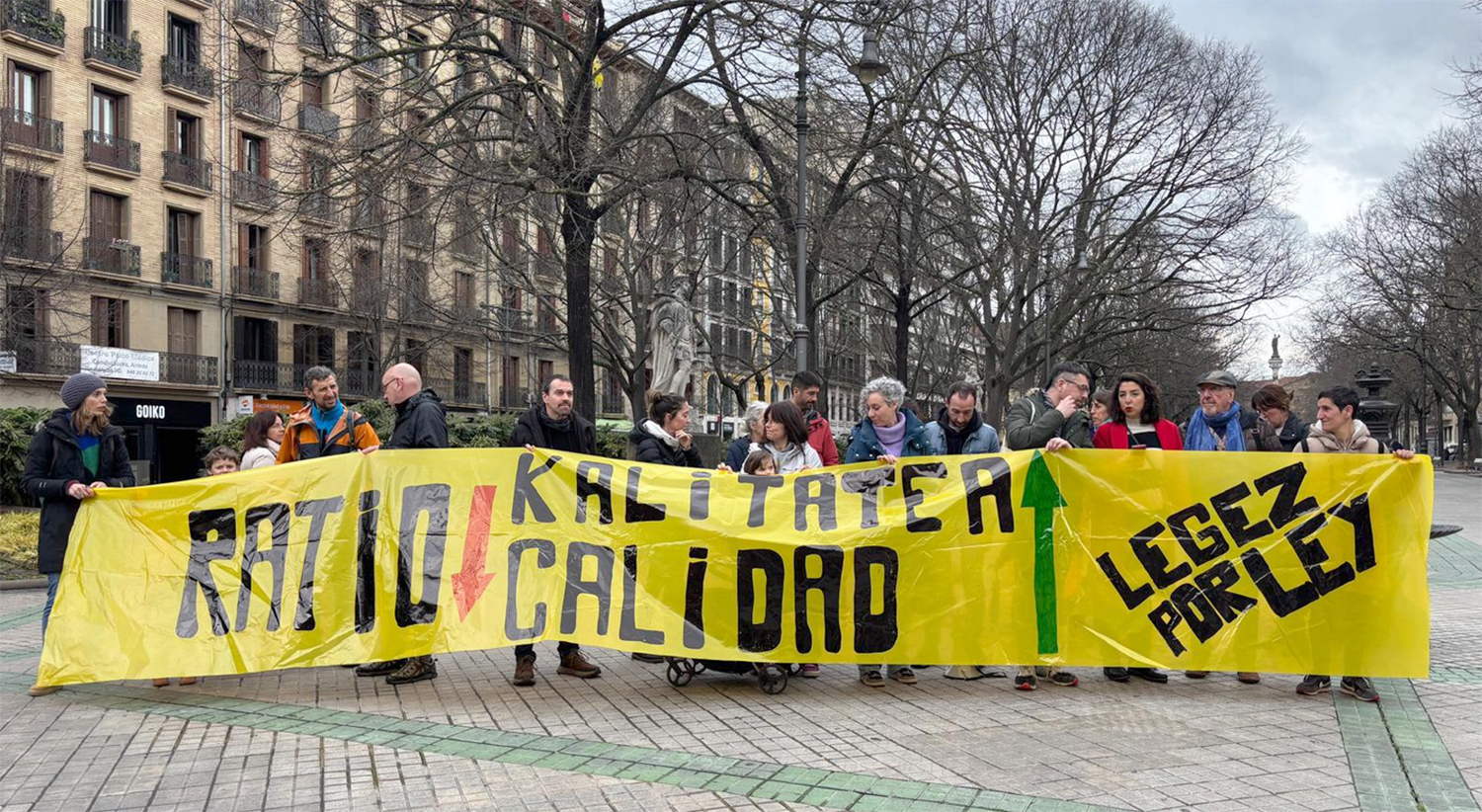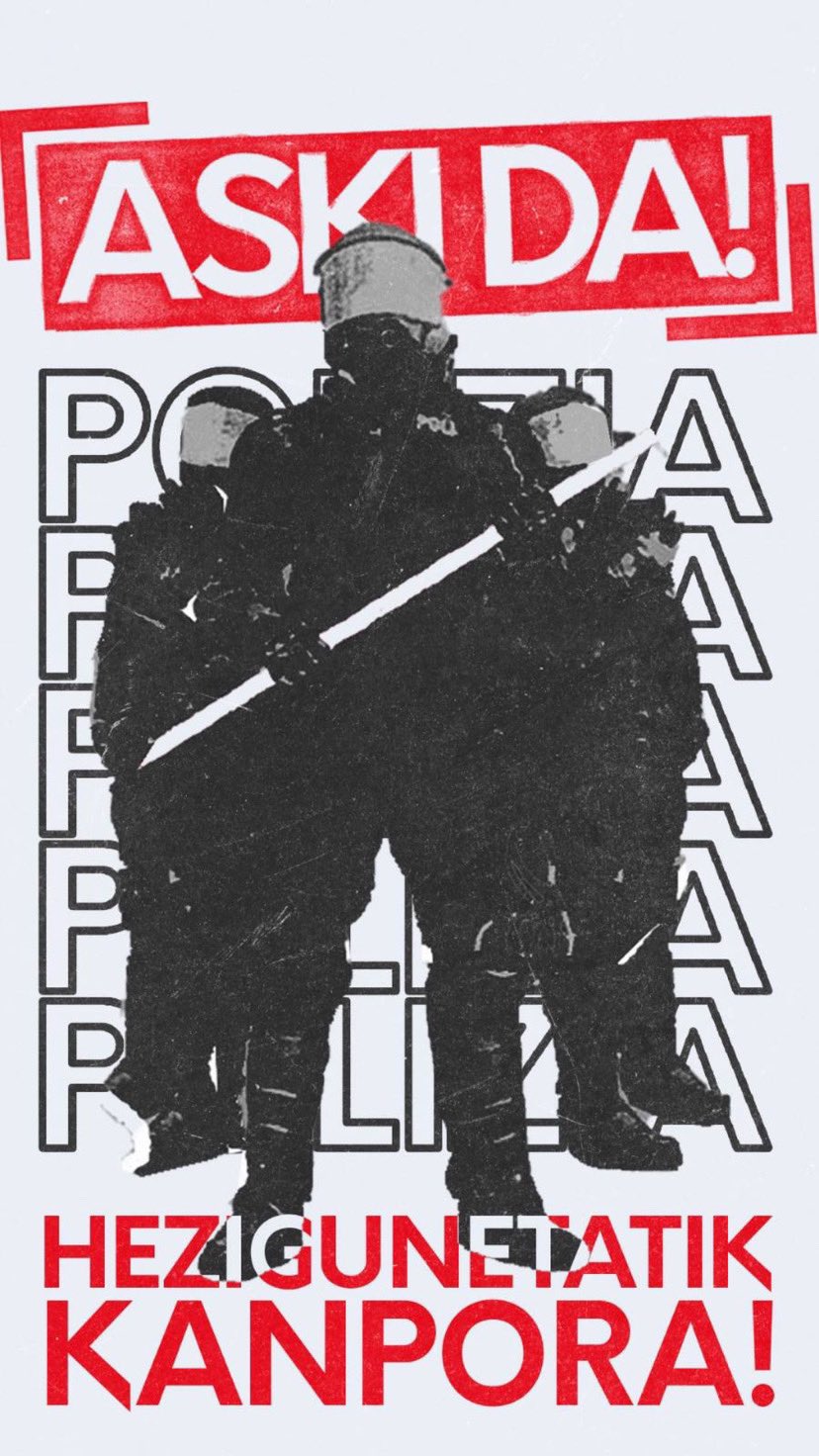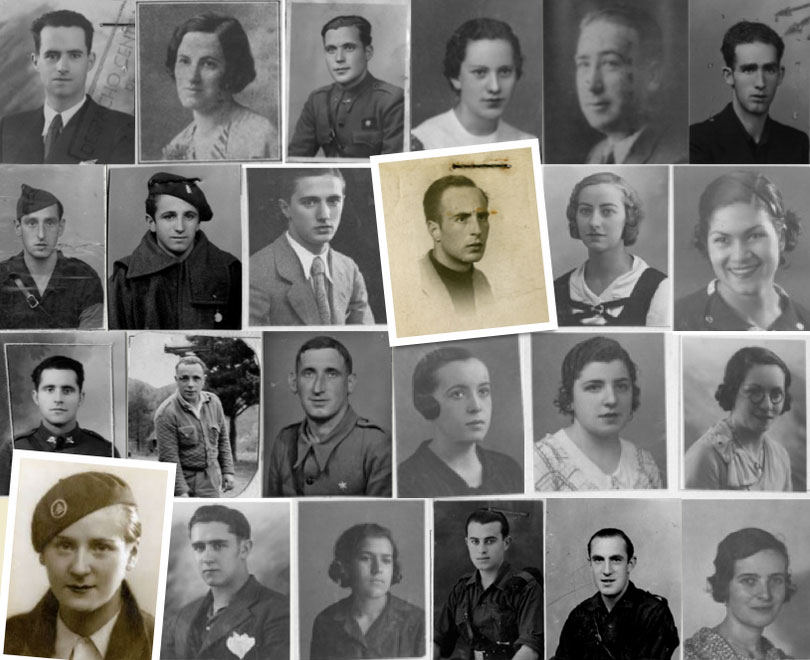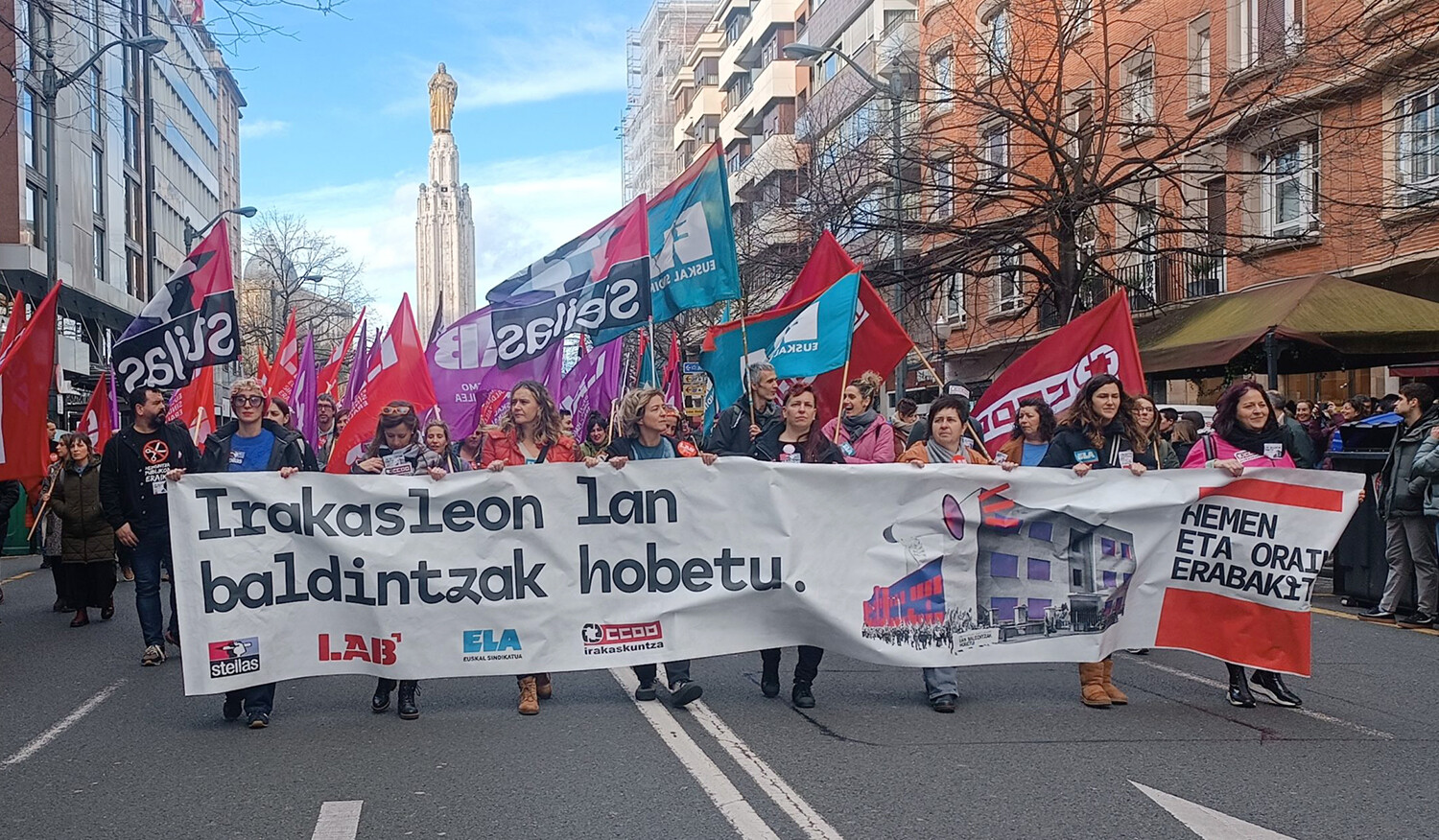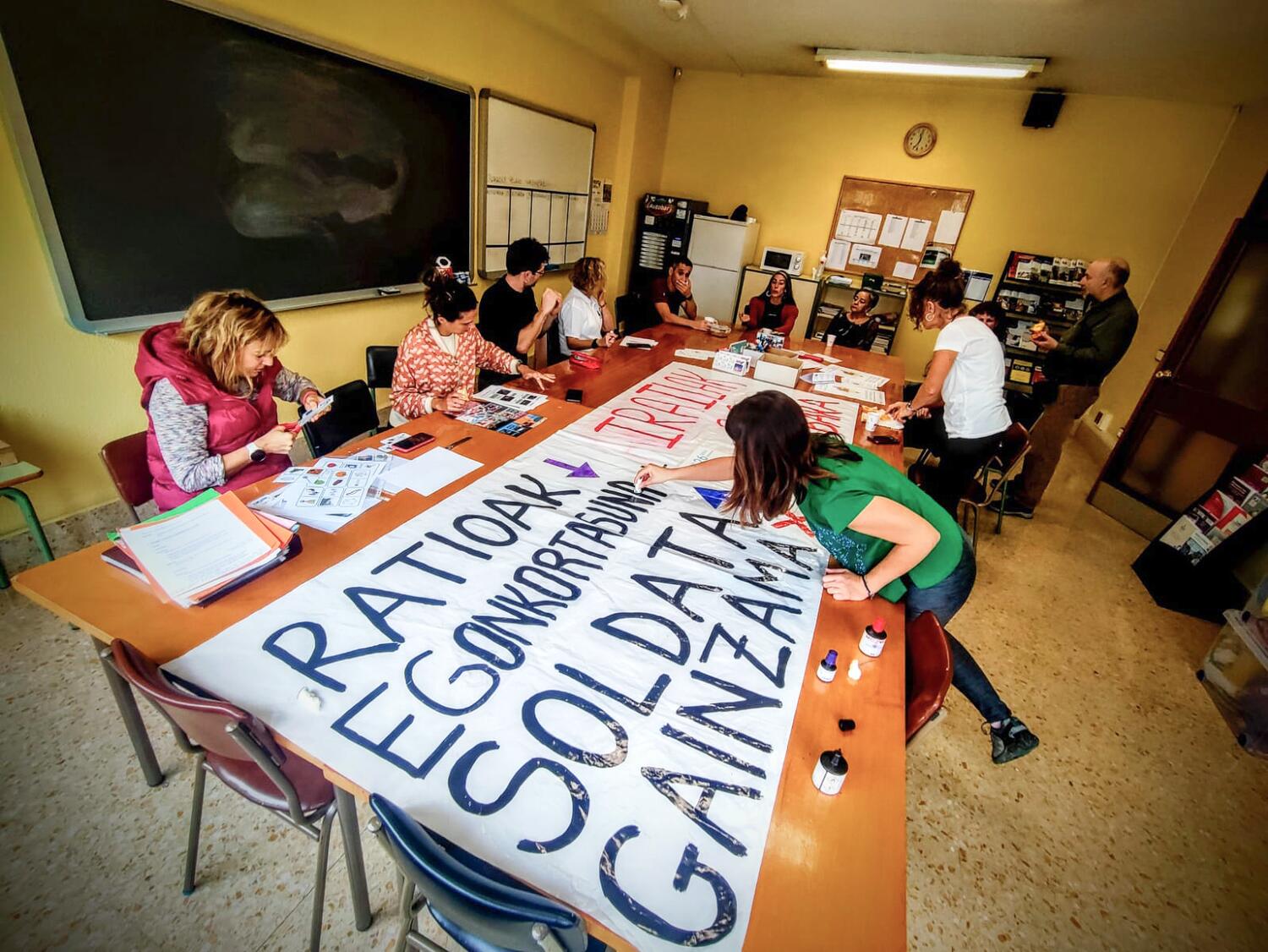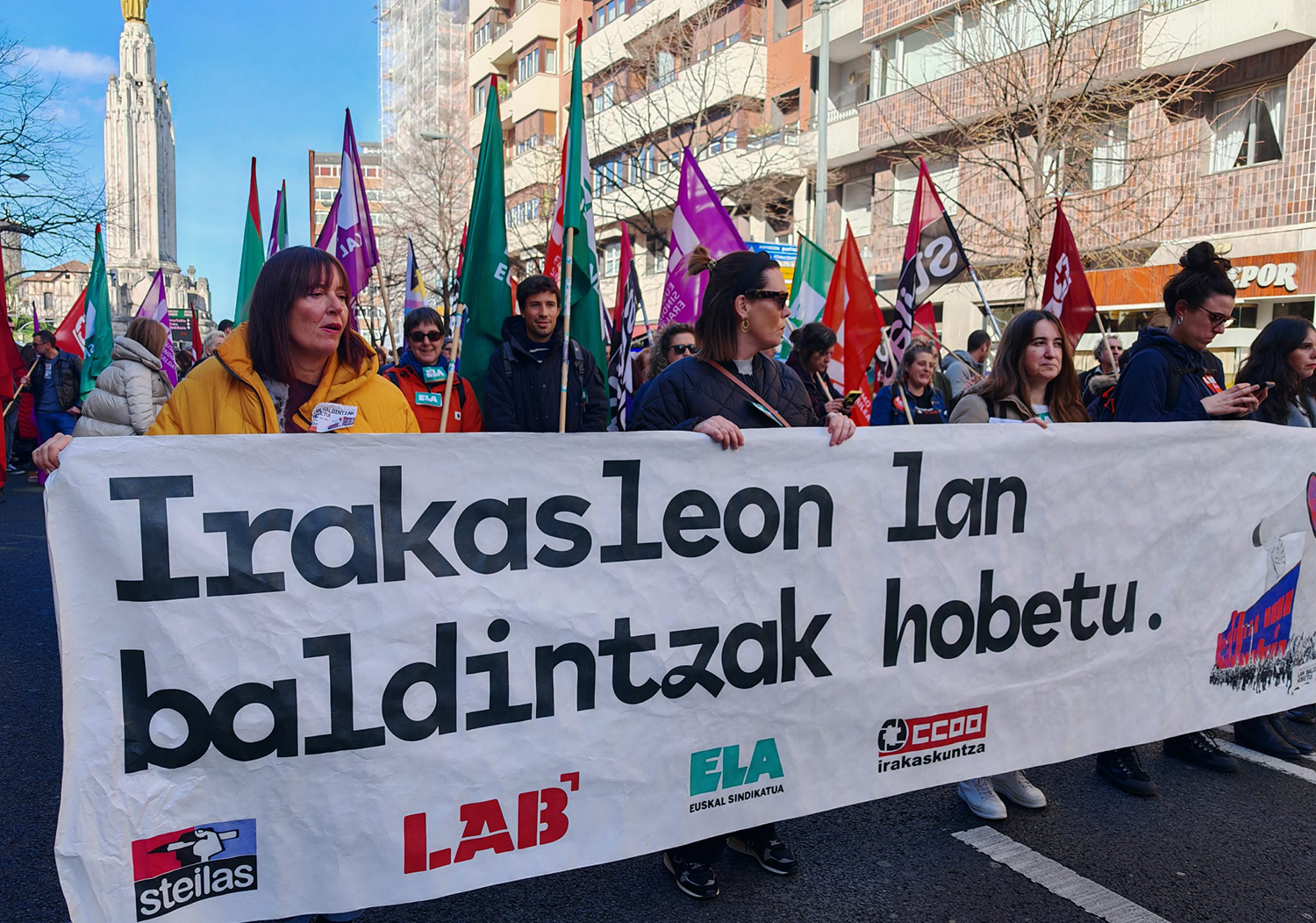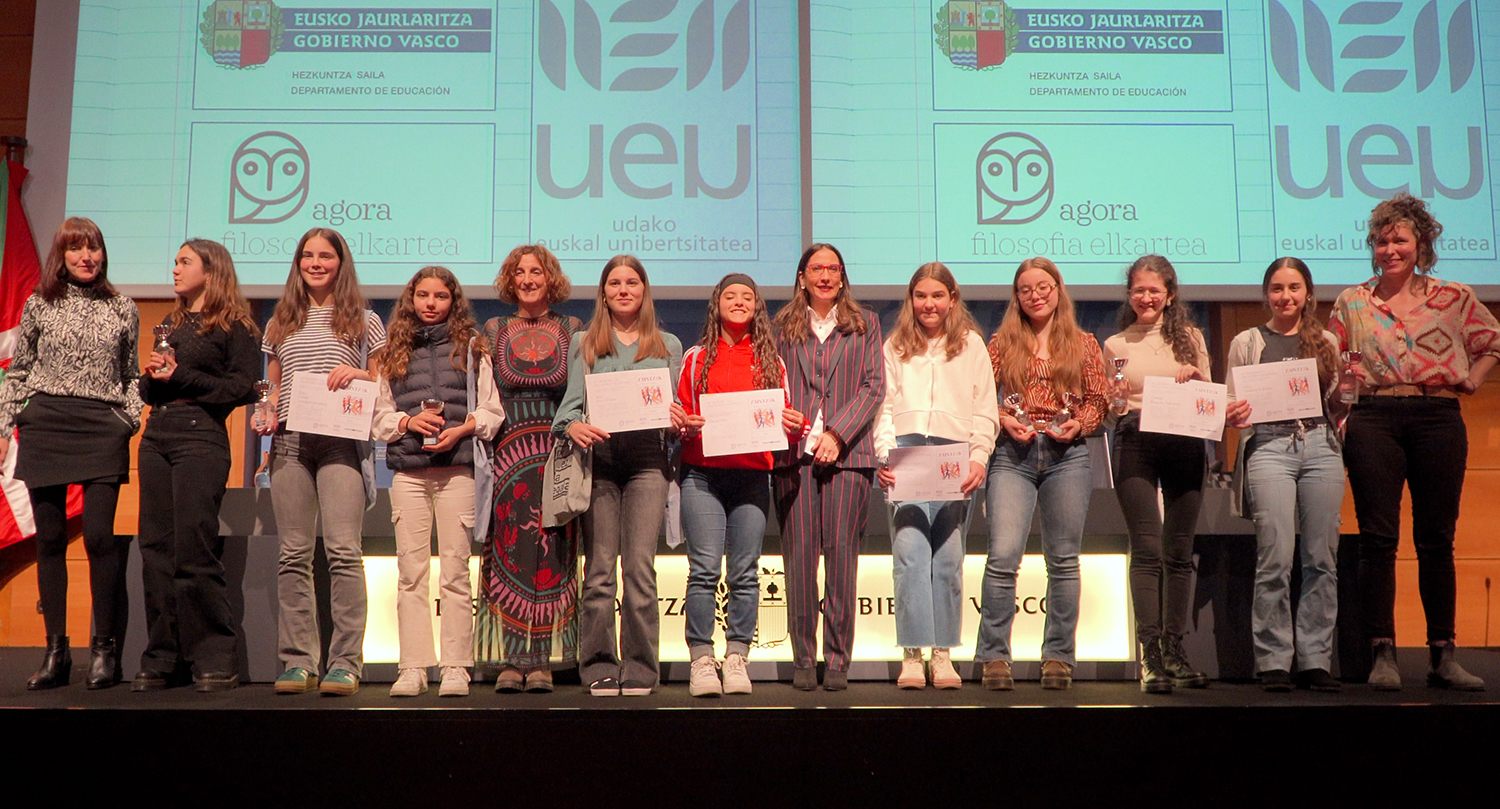They start in Larraul la Herri Eskola, with the planting of medicinal orchard between four agents
- The school service has been in operation since 2008, but until now it has been the "remote classroom" of Pello Errota College of Asteasu. This course has been recognized by the Department of Education as a school achievement and celebrated on 17 September, reviewing its history. For this purpose, they have formed the medicinal garden with the planting of medicinal plants that flourish in an era of the year: autumn for families, winter for institutions, spring for students and summer for teachers. The event was also attended by representatives of the Basque Country, and was a popular holiday all day.

Participation in the celebration of the launch of the Larraul Public School has been as diverse and colorful as the medicinal garden: Throughout the age of 14, families, pupils and educators of all kinds (nursery educators, teachers, specialists, dining monitors...) were present. Also the students who were part of the former school that once had Larraul (school that lasted until the 1960s). In addition, representatives of the following institutions participated: Education Department, Larraul City Hall, Baikara, EHIGE and the Coordinators of Eskola Txikiak.

"I want to make you a vegetable garden..."
The symbolic act has focused on the planting of a wheel of medicinal herbs in the prairie of the Larraul Public School. One medicinal plant per month to complete the seasons and cycle. In each station, the protagonist has been an agent that is the basis of the school: in autumn the families, in winter the institutions, in spring the students and in summer the teachers. Therefore, the act has been divided into four parts (one per station), in each station one representative has intervened and another one has planted medicinal herb. Medicinal plants have been planted and have taken the floor:
“Autumn, initiative”
Eider Arozena, one of the mothers who started the school service of Larraul in 2008, has planted the autumn medicinal plants: Chillar (October), Romero (November) and Ilena or Kalendula (December).
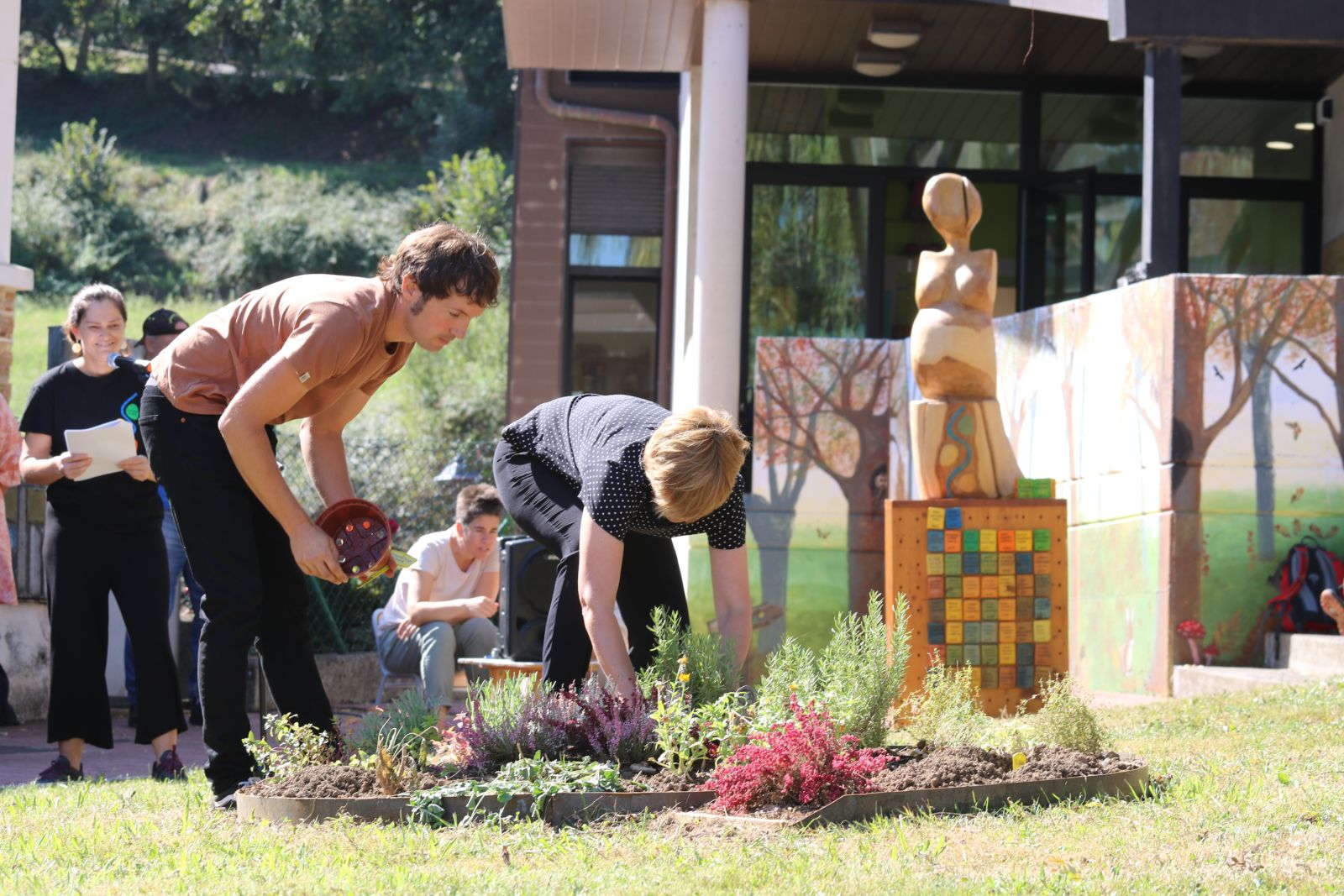
Ixiar Eizagirre, the father of the oldest student at the start of the school in 2008, took part. “I want to highlight two strokes, one clear and one dark,” explains Eizagirre. The light, “what strength emerged at that time and in the group working together and providing each one his own to where we are able to reach”. With regard to the dark brush, he recalls that when the school was launched in 2008, only the school was guaranteed until the age of 8: “In the elections the Department of Education changed and we had to spend four very long and hard years. We met all the requirements of the decree, but the reply we received from the Delegation was negative. The other towns had a school with the same number of students, but Larraul was told no.” He explains that this put parents in a very complicated situation, and that each had to make a decision about whether or not to continue at local school. “Whoever wants to choose free, wants the other also to be able to choose free, even if the decision of each is different.”

Eizagirre finished his speech with the following positive message: “It has been a lesson for me not to condition relations with fellow citizens on the basis of that decision. And what I am most pleased to see is that children and young people from families who made a different decision are together.”
“Winter, empathy”
Maite Arana, mayor of Larraul, has planted the winter medicinal plants: Malva (January), Transportxka or melisa (February) and Oreja de Urinale (March).

Take the floor of the Territorial Education Delegate of Gipuzkoa, Amaia Urzelai. Urzelai stressed that Larraul’s learning community has progressed “slowly but progressively at work. This was the dream that this people had, that was going to get at some point. When you asked for a meeting to reclaim Larraul's schooling character, we celebrated it here and said so proudly but without pride that a schoolcharacter was necessary, because the people of Larraul were worth it. And here we have the open door of Larraul’s school.”

“Spring, Joy”
Former student Eneko Esnal has planted spring medicinal plants: Mendabeltza (April), Lavanda or Lavanda (May) and Mendaro or oregano (June).

Former student Izan Mora makes the following quote: “I really like cars and we’ve had the opportunity to make cars in school. In small groups, I've seen mathematics, manipulating it, listening to each other's words, I've been hooked. Going to the forest every week has been perfect for doing any job more tastefully. I've made friends, and when we've had to fix our things, we've had time and opportunity to talk. I felt protected. It's been Earra!"

“Summer, prosperity”
Josune Eizmendi, professor at the school of Larraul and Maikar Iurramendi will plant summer medicinal plants: Fennel or fennel (July), Ezkaia or thyme (August) and Salbia (September).

Koldo Rabadam, professor and first director of Larraul's Herri Eskola, highlighted the following message: “Yesterday in the cloister we were talking about the school of our dreams. And almost, but we haven't done it yet. We've almost touched the dream school, but the closer the dream gets to us so that we can continue to make the way. That’s the Bidean project.” In fact, the pedagogical project he has developed in recent years in the Herri Eskola de Larraul is one of the characteristics of the school and is called Bidean (Rabadan explains its foundation in this book).
.jpg)
Rabadam addresses the final words to his students: “A school is done by the students. If you have to congratulate someone, you are the students, the lucky ones. Because you work very well in carrying out projects and during these years you have been very good teachers for all of us.”
At the end of the act, the public has had the opportunity to water the medicinal wheel.
.jpg)
35 families and 57 pupils have passed through the Larraul school in a population of 250 inhabitants
Larraul's school service was expanded in 2008 and with it the Haurreskola. 9 children aged 2 to 4 years and 17 families started school: In addition to the 9 students, the parents of children from 0 to 2 years of age participated in the implementation of the school. Having no initial autonomy from a school, which was part of the center of Asteasu, and being guaranteed the service only until the age of 8, they had to do a great job year after year with the Department of Education to expand a course and so on until the age of 12, obtaining the necessary resources.
After 14 years of schooling, the Haurreskola de Larraul is now present, as well as school service until the age of 2-12, which has reached the official status of school, which gives it full decision-making capacity and the own resources of a school. And it has a specific and own learning project that has worked throughout this journey.
Over these 14 years, 35 families and 57 students have participated in the Larraul school. A significant figure, considering that Larraul has a population of approximately 250 inhabitants. At the beginning of each course, the students who first joined Larraul's school place a coloured sheet with their name to the tripandía sculpture, made by Karlos Irazu, which symbolizes the school. In the image, one of the six new students starting this year with the file:

All day party
In addition to the symbolic act, in the morning the sculptor of Larraul, Karlos Irazu, made a wooden sculpture with the chainsaw: a frog to place it at the entrance of the lagoon that the school has just built.


The painter Olivia Sánchez has painted the mural on the wall of the school portico during the last week, with the participation of students and citizens.


Guided by Arrate Iturbe, clay pellets have been made from seed and mud nomer that have been thrown into lands near the lagoon.


After the event, 80 people have made a popular meal in the plaza and then they have sung bertsos stalls, played in the “Txolinpiadas” and closed the day with a joint dinner with the bar.
Ez dakit nondik hasi, egia esan. Ordezkoa naizen heinean –irakaskuntzan ikasturte gutxi batzuk daramatzat lanean– eskola ugari ezagutu ditut Nafarroa, Bizkai eta Araban zehar. Lankide izan ditudan irakasleekin euskal eskolak dituen gabezien inguruan hitz egiten... [+]
“Gogo eta gorputzaren zilbor-hesteak: bi kate. Bi kate, biak ebaki beharrezkoak: bat gorputzaren bizitzeko, bestea gogoaren askatzeko”. Hala dio Mikel Laboaren kantak; hala izan da belaunaldiz belaunaldi, egun arte.
Gogoan dut nire gurasoak askotan joaten zirela... [+]
Matxismoa normalizatzen ari da, eskuin muturreko alderdien nahiz sare sozialetako pertsonaien eskutik, ideia matxistak zabaltzen eta egonkortzen ari baitira gizarte osoan. Egoera larria da, eta are larriagoa izan daiteke, ideia zein jarrera matxistei eta erreakzionarioei ateak... [+]
Elgarrekin izena du Duplak egin duen aurtengo abestiak eta Senpereko lakuan grabatu zuten bideoklipa. Dantzari, guraso zein umeen artean azaldu ziren Pantxoa eta Peio ere. Bideoklipa laugarrengo saiakeran egin zen.
Leporaturikoa ez onarturik, eta sare sozialetako kontuak "lapurtu" zizkiotela erranik, salaketa jarri zuen Arabako campuseko Farmazia Fakultateko irakasleak. Gernikako auzitegiak ondorioztatu du ez dagoela modurik frogatzeko mezu horiek berak idatzitakoak diren ala ez.
Seme-alabek eskolan dituzten ratioekin kezkatuta, Arartekoari kexa helarazi zion guraso talde batek, eta orain zuzenean Parlamentuari egin diote eskaera, “legez berma dadin gure seme-alaben hezkuntzaren kalitatean oinarrizkoa den neurria, unean uneko aurrekontuez edo... [+]
Ikasleen lan politikoa jazartzeko asmoz, Iruñeko Iturraman eta Biurdanan nahiz Bilboko Unamunon izan dira polizia-indarrak, IAk salatu duenez.
Memoria eta Bizikidetzako, Kanpo Ekintzako eta Euskarako Departamentuko Memoriaren Nafarroako Institutuak "Maistrak eta maisu errepresaliatuak Nafarroan (1936-1976)" hezkuntza-webgunea aurkeztu du.
570.000 familiak euren haurren ikasgeletako hizkuntza nagusia zein izango den bozkatzeko aukera dute martxoaren 4ra arte: gaztelera edo katalana. Garikoitz Knörr filologoaren eta euskara irakaslearen arabera, kontsultak "ezbaian" jartzen du katalanaren zilegitasuna... [+]
Uribe Kosta BHI institutuko hainbat ikaslek salatu duenez, mezu "iraingarriak, matxistak eta homofoboak" jaso dituzte Batxilergoko beste ikaskide batzuengandik. Horrez gain, gaineratu dute mezuak irakasle bati ere bidali dizkiotela eta beste ikasle batzuen... [+]
Aiaraldeko hainbat irakaslek mezua igorri diete ikasleen guraso eta familiei, dagoen informazio zurrunbiloan, grebarako arrazoiak modu pertsonalean azaltzeak euren borroka eta lanuztea hobeto ulertzeko balioko dielakoan.
Euskal hezkuntza sistemaren itunpeko eskolen gainkontzertazioa eta zentro pribatuen umeak hartzeko gaitasuna beherakada demografikoari eta biztanleriaren klase osaketari egokitu behar dira.
Grebaren bezperan Hezkuntza Sailak “edukirik gabeko” mahaia deitu zuela eta sindikatu deitzaileak “errespetatu gabe” akordioa “antzezteko” gutxiengoa duten sindikatuak “erabili” nahi izan zituela salatu ostean, beste bi greba... [+]
Nola azaldu 10-12 urteko ikasleei bioaniztasunaren galerak eta klima aldaketaren ondorioek duten larritasuna, “ez dago ezer egiterik” ideia alboratu eta planetaren alde elkarrekin zer egin dezakegun gogoetatzeko? Fernando Valladares biologoak hainbat gako eman dizkie... [+]
Une delikatua igarotzen ari den zure lagun minak Taylor Swiften kontzertura joatea proposatu dizu, baina kide zaren elkarte ekologistak elkarretaratzea deitu du, abeslariak sortuko duen kutsadura salatzeko; nora joango zara? Dilema etiko horri erantzun diote gazteek, baita... [+]








